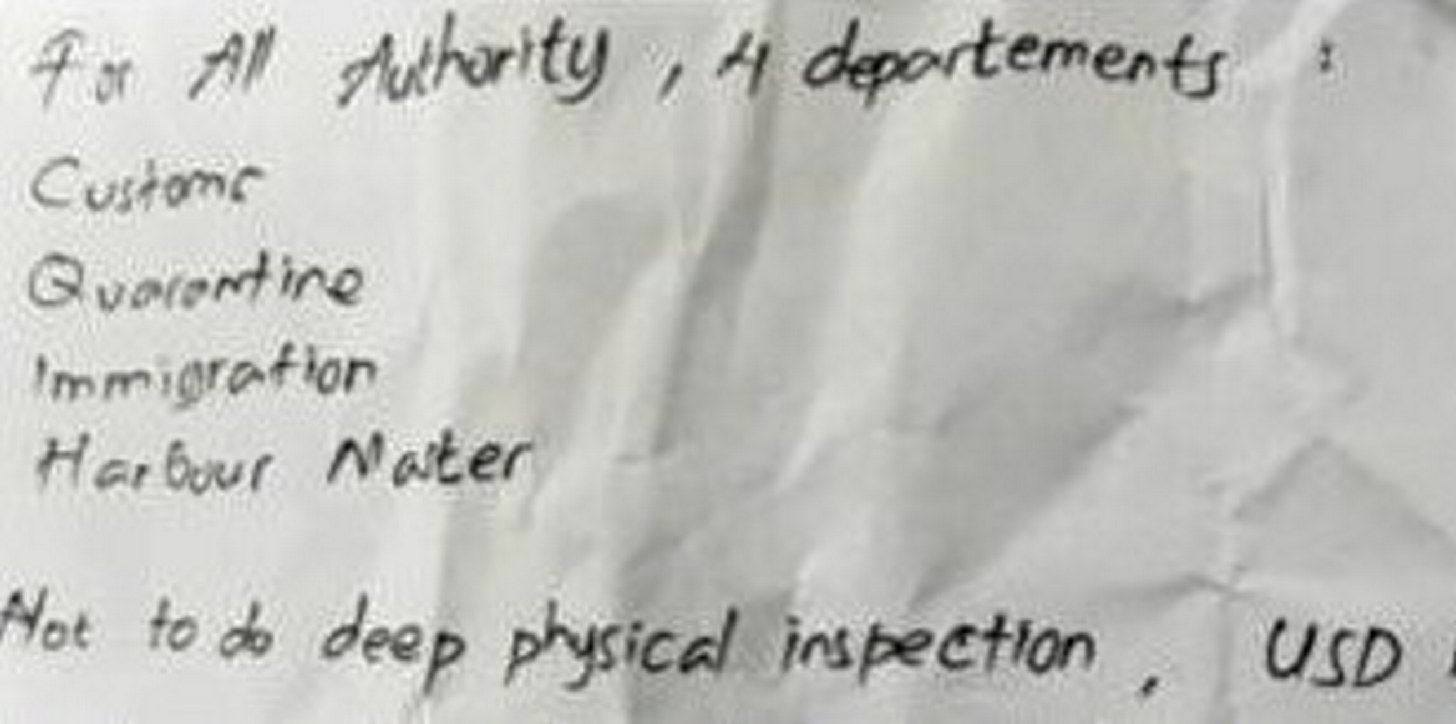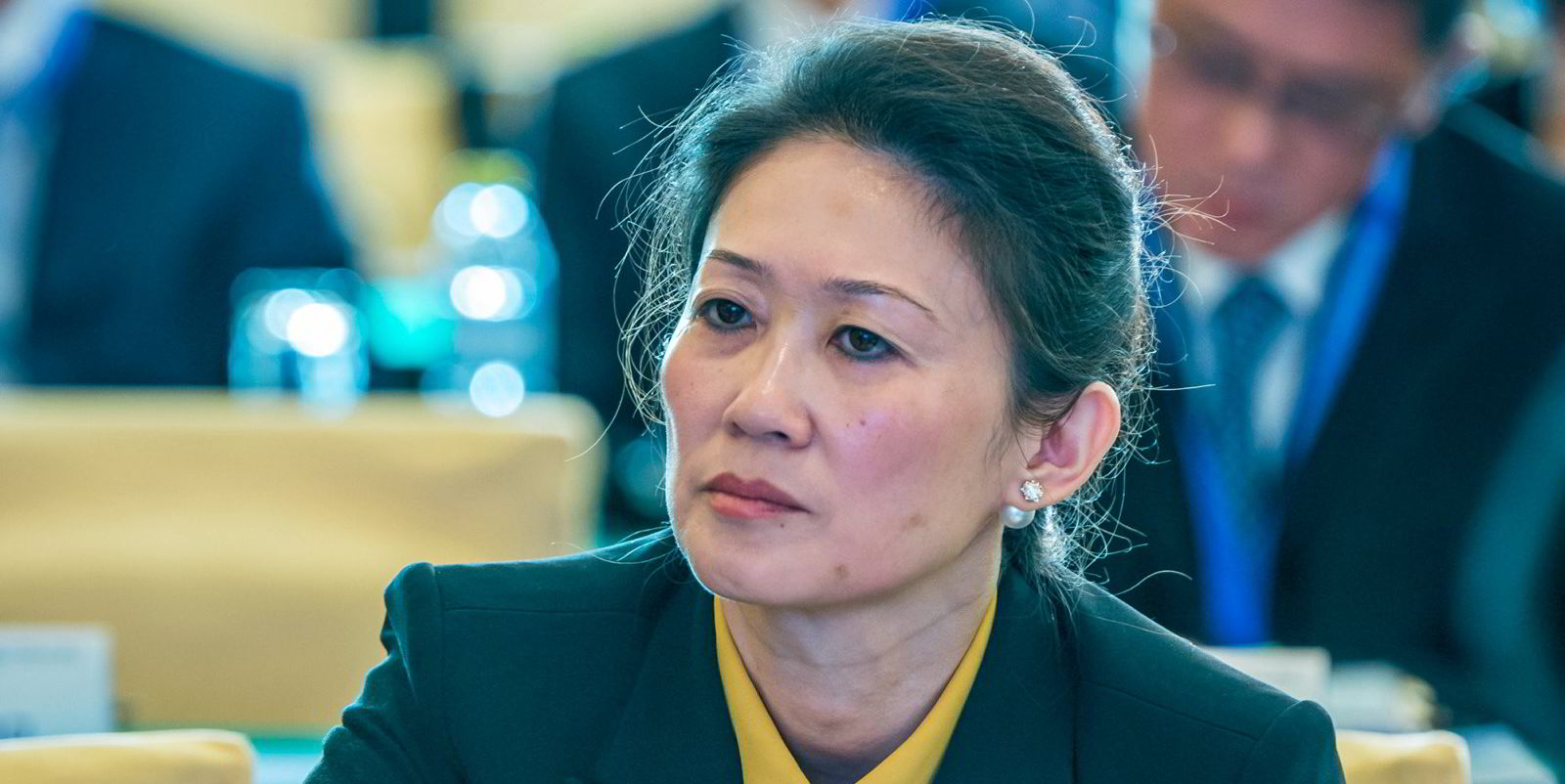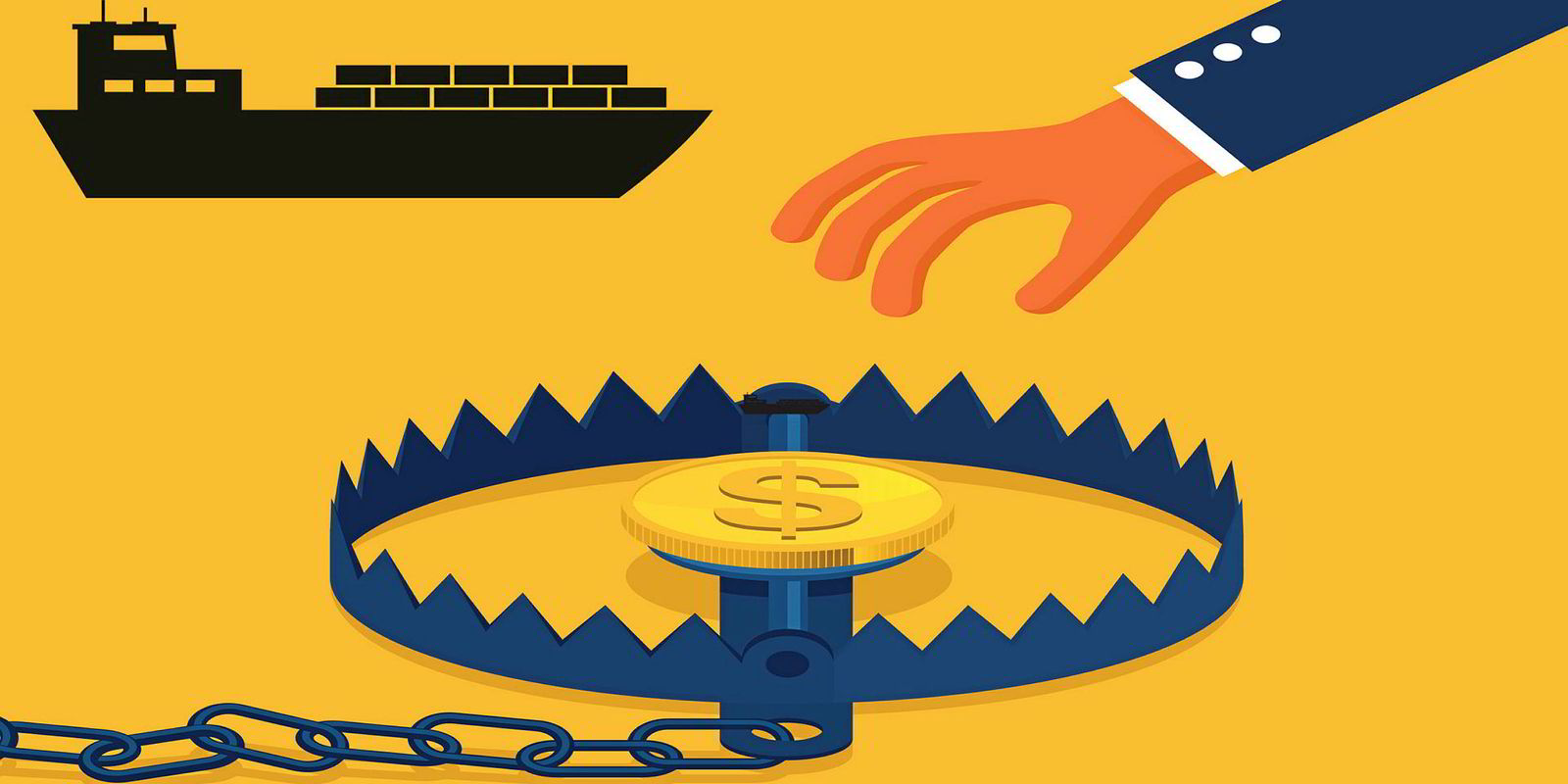Stolt Tankers is saying “enough is enough” as it highlights increasing corruption in shipping.
The Netherlands-based chemical tanker company has a zero-tolerance policy on bribery demands faced by its seafarers.
Managing director Maren Schroeder has published a note passed to one of its masters by a port official a few weeks ago, demanding $600 to avoid a “deep physical inspection”.
This was shared on LinkedIn and received an “overwhelming” number of responses, suggesting that shipping is “far from where we want to be in this regard”, Schroeder said.
“Our captain followed Stolt Tankers’ procedure and explained to the official that he was unable to provide cash or goods as he must abide by the law, specifically the UK Bribery Act 2010,” she explained.
“He then reported the incident to his superintendent. In this instance, the captain received excellent support from our agent on site. No money or other payment of goods was paid, and that ‘deep physical inspection’ never happened.”
Stolt Tankers is now a member of the Maritime Anti-Corruption Network.
Schroeder added: “In the ‘old days’ it was normal practice in shipping to hand out cigarettes or bottles of whiskey, for example, to a pilot to ensure a safe canal passage. For us, these days are long gone.

“I must say that I had mixed feelings about this in the beginning. While I am against any form of corruption, I could also see the problems that would arise for our captains.
“Intentional groundings by disgruntled pilots were not unheard of; ships were unduly delayed or detained, and immediately put on hold by customers without asking questions, and occasionally ships were trashed by angry customs officials.”
It soon became known that Stolt Tankers would not hand out anything, so the requests lessened.
In 2021, the shipowner had only three demands for bribes reported, in around 6,000 terminal calls during the year.
“However, in the post-pandemic world we have seen a change for the worse again,” Schroeder said.
“We are creatures of habit. If people keep giving ‘gifts’ or money, people will keep asking. Only if we collectively stop, can we make a difference.”
Ian MacLean, master mariner and partner at law firm Hill Dickinson, said seafarers will be guilty of bribery if even cigarettes are offered to influence the action of an official.
He said a warning sign is if a request to pay a fine, for example, is only made verbally, and for cash.





